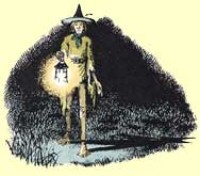Many psalms enter the brokenness of life and give vent to human anguish and confusion. And these usually, somewhere, all breathe a final breath of hope. There is always hope. In every psalm, that is, except Psalm 88.
Psalm 88 knows nothing but despair, the pain of rejection, the darkness of the unknown. It is the black hole of the psalter, sucking into itself everything that is dark and refusing the emission of light.
The psalm is so dark that some read it with no pleasure. It is a strange world to them. But to others, it is a place of refuge because it gives expression to emotions previously unspoken. To these, Psalm 88 feels like the world in which they live. It is a bleak world, stripped of hope and light, but it is familiar because it is their world. Here is just a taste of that world:
O LORD, why do you cast my soul away?
Why do you hide your face from me?
You have caused my beloved and my friend to shun me;
my companions have become darkness. (Psalm 88:14, 18)
With such unrelenting words the psalm becomes the friend who can say for us what we dare not say ourselves. It says what we might be shocked to find that we are feeling, and assures us we are not alone. There is comfort in that.
Psalm 88 therefore joins us in the dark and gives us a voice. But Psalm 88 never shows up alone.
To get to Psalm 88, we have to trip over Psalm 87.
Glorious things of you are spoken,
O city of God.
(Psalm 87:3)
And from Psalm 88 we can glimpse Psalm 89 on the far side.
I will sing of the steadfast love of the LORD, forever;
with my mouth I will make known your faithfulness to all generations.
(Psalm 89:1)
The question “Why” is the question of the heart that is so battered it cannot imagine enduring another blow. It is the question of Psalm 88 that receives no answer. But those unanswered questions are asked of a God whose favor, obscured, invisible, questioned, and doubted, is no less real. The inexplicable pain of life in the valley of death’s shadow exists in the context of the ineradicable promises of God’s favor and life.
Psalm 88 leaves us with no hope, and for that I’m grateful, for it feels much more real. But hope is still here, standing guard, on either side, for this is the psalm in the middle. And someday, those who feel at home in the darkness will lift up their eyes to see what lies on either side. And that will be a good day.

 possibly go wrong, I expect it will. If I get a headache, I expect to die of a tumor. If there is an unusual noise coming form the microwave, I immediately calculate how we are going to afford the new one I know we are going to have to buy. And if things are going well, I worry about when they will fall apart.
possibly go wrong, I expect it will. If I get a headache, I expect to die of a tumor. If there is an unusual noise coming form the microwave, I immediately calculate how we are going to afford the new one I know we are going to have to buy. And if things are going well, I worry about when they will fall apart.